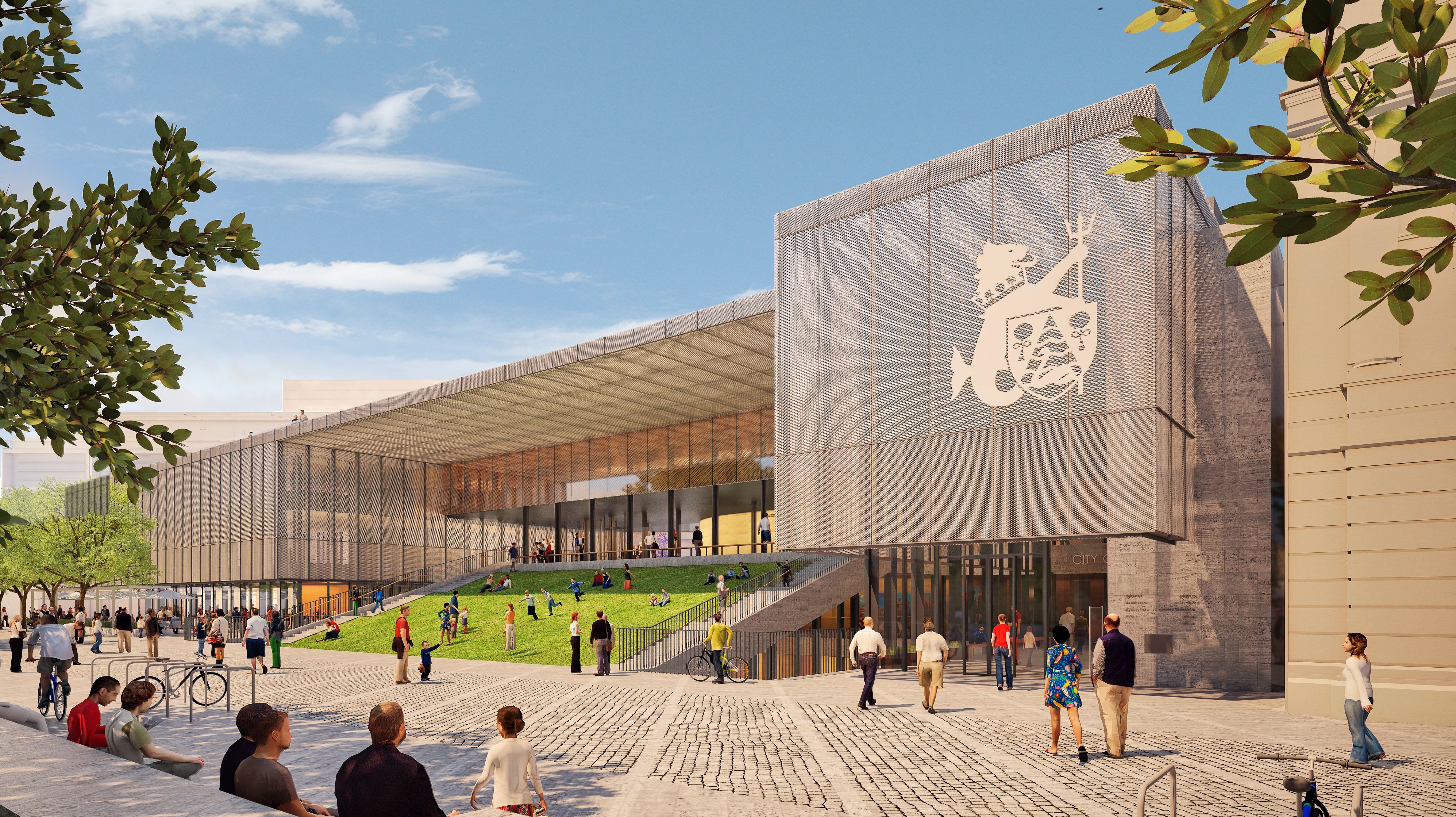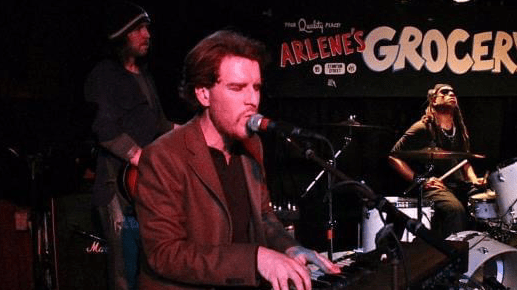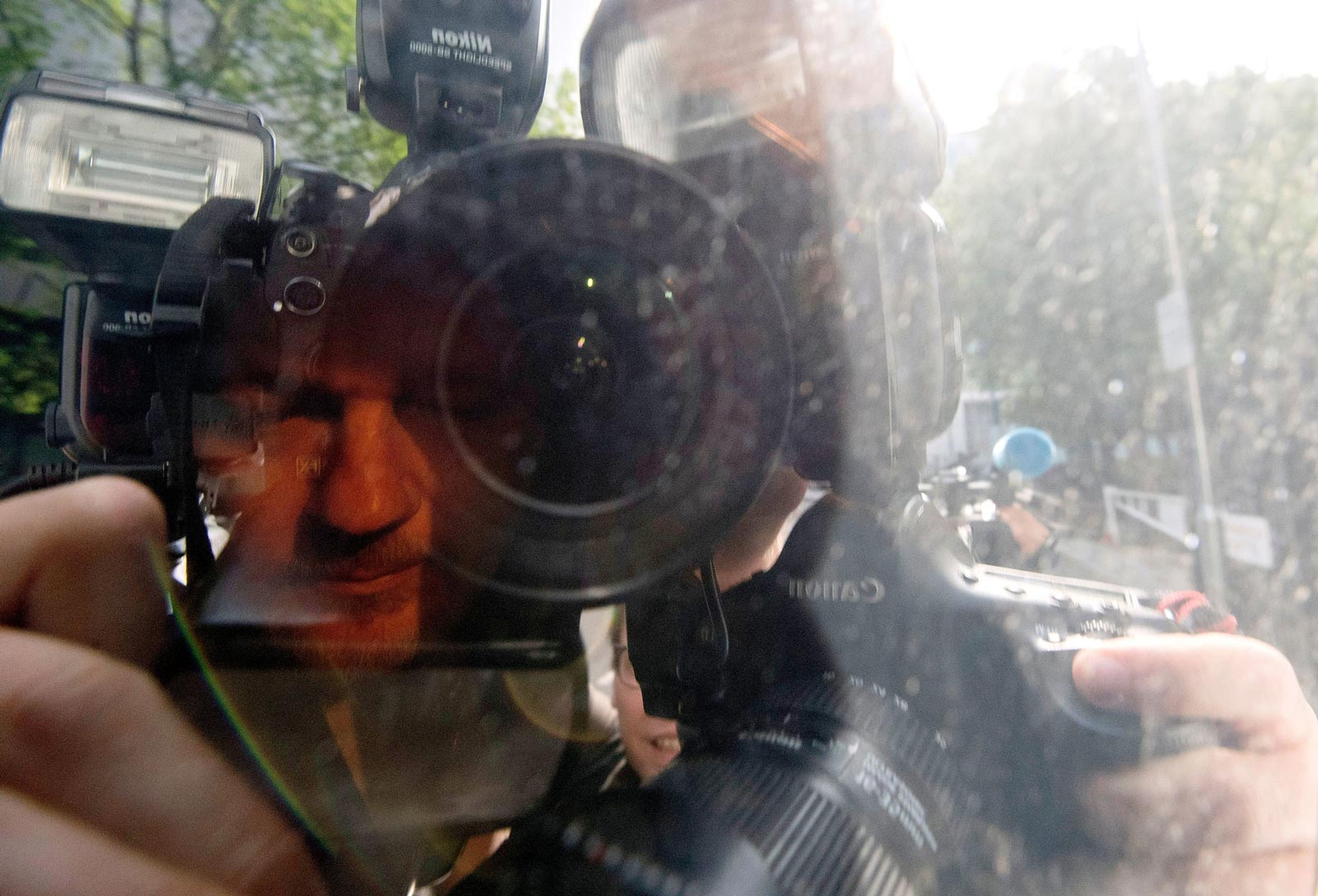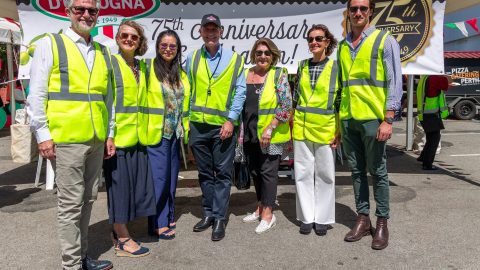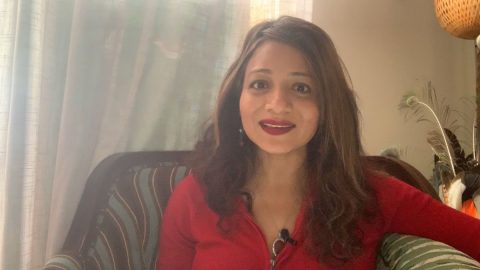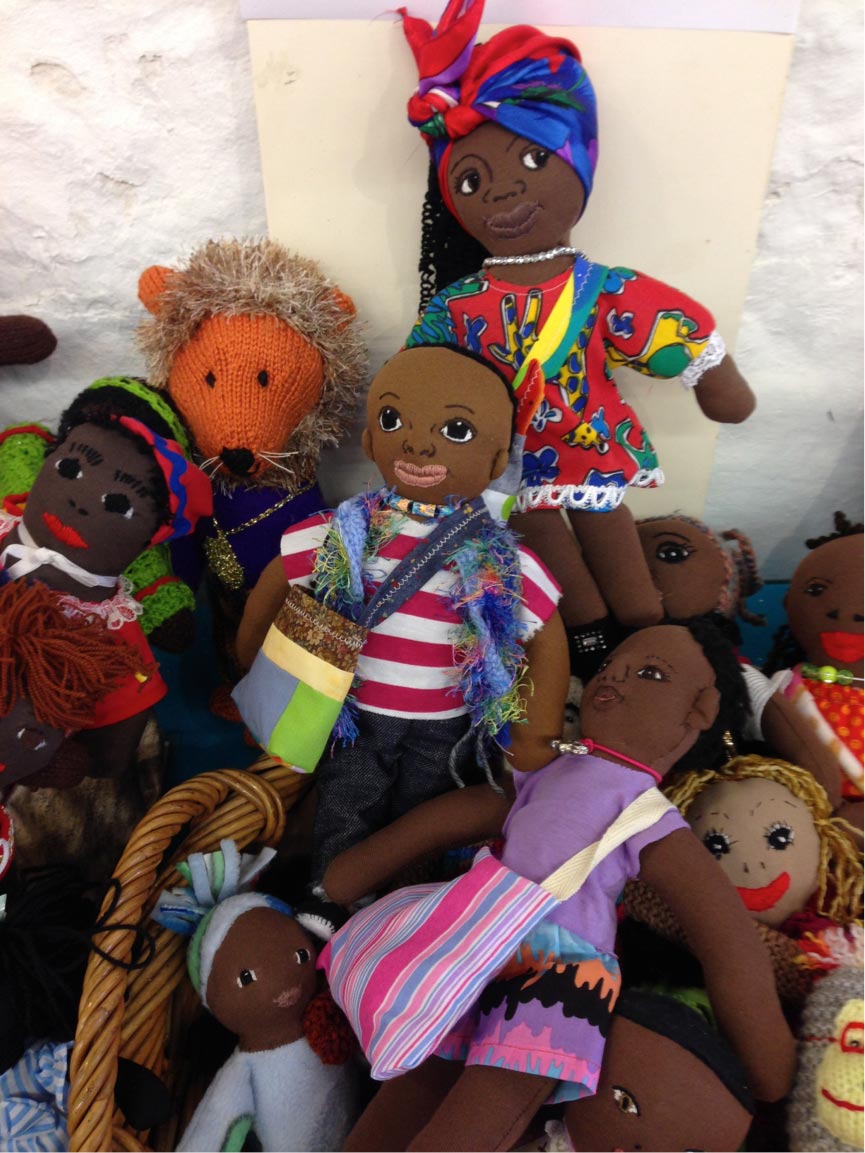Decades ago, when I lived in a small country town on the south coast, a group of men would meet on Saturday morning for coffee. In the course of one of our yarns, the discussion turned to whether or not we felt it necessary to have a sense of purpose – something that would help give meaning to our lives. All but one of us answered in the affirmative. The lone exception looked bemused, as if such a strange thought would never have crossed his mind. Given his status as a semi-itinerant hippie, the rest of us were probably not surprised.
That conversation came back to me as I pondered a few of the topics that have come up recently among a bunch of metropolitan mates who meet every Thursday at a well-known South Fremantle café. Given the precarious state of the Dockers, football gets short shrift. We do stray onto cars and dogs but, thankfully, not for long. Climate change, the energy crisis, the Voice, political impotence, and artificial intelligence get us going, often in more-or-less tender disagreement. When the two hours are up, and we return to the sanctity of our computer stations, emails fly hither and thither. As SOROGs (sort of retired old goats), we do have the luxury of daily reflection.
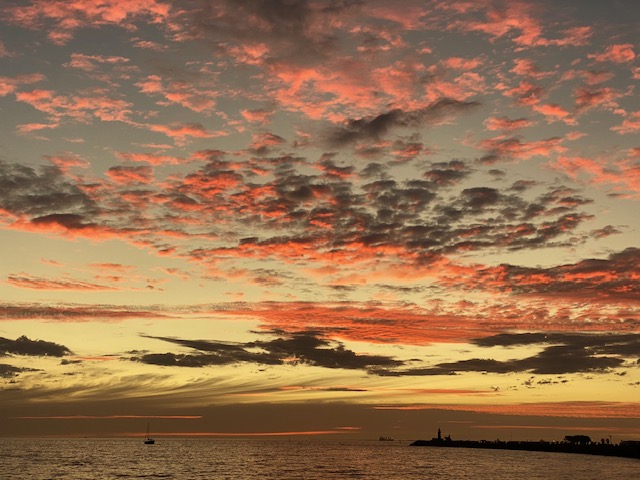
We also have a creeping recognition our use-by dates are approaching (at least in the form we currently occupy). This recognition, as I recall Kerry O’Brien stating upon turning 70, ‘does concentrate the mind’.
It does – though many, if not most, of us, are averse to an overconsumption of introspection, immersed as we are in the demands and distractions of day-to-day life. Coupled with an information overload, we cope as best we can and try not to think too far ahead.
But within that plethora of information there are gems on offer. We can learn from and resonate with others who may be far more prominent. These days, they are usually neither political nor religious figures, at least in affluent Western societies. Their voices are transmitted to us across a panoply of outlets – books, articles, television appearances, documentaries, online interviews, websites, and more. As I construct this piece, I’m surrounded with written material and, with the tap of a black button, I can connect with the digital world and access a range of material that was out of reach for the first two-thirds of my life.
Let’s deal with the proposed indigenous Voice. Noel Pearson’s countenance stares at me from the pages of the Weekend Oz. His has been a journey of commitment, sometimes at odds with the prevailing wisdom within both the white and indigenous communities. His passion and erudition shine through, at times poetically. The Voice to Parliament is ‘an act of faith and love’. Constitutional recognition ‘answers a spiritual need in the Australian nation’. Without it ‘the reconciliation agenda will die’.
Whereas others argue the Voice will divide the nation, Pearson’s belief and hope is that its enactment will be a crucial signpost on the road to unity. I agree with him. And I agree with my caffeinating friends and members of my family, with whom the subject has been canvassed, that political leadership by the major parties has been abysmal. In what has become a seemingly entrenched norm of modern politics in this country (and beyond), point-scoring and polarisation rule the roost. With the referendum still months away, we are yet to see any sign this might change.
I believe that we, as a nation, need to listen and give effect to the heartfelt aspirations of the vast majority of our indigenous brethren. The road to the Voice has been long and hard. If the referendum passes, it will be no instant panacea for the ills and issues of many indigenous Australians. But the type of spiritual foundation to which Pearson alludes can, I think, lead to better practical outcomes. Heavens above, we can hardly do worse than past efforts and present realities.
Probably a good moment to segue sideways. The Murdoch press gets a mixed wrap in many quarters. Yet you can find gems, particularly in the offerings of some columnists. John Carroll does not always capture my attention but I thought his recent prognostications on whether or not Western society now inhabits ‘a metaphysical wasteland’ were well worth a read. Carroll reckons that ‘Christ the Saviour is no more’ and ‘Jesus is assumed to be obsolete’. He goes on to talk about the ideal of a saviour who has ‘discovered the key to the good life and uncovered the truths that matter’. We are taken on a literary and historical tour which culminates in the removal of a religious framework as a source of meaning and inspiration in everyday lives, replaced by ideologies such as communism and fascism, and more latterly by sporting heroes like Roger Federer and environmental redeemers such as Greta Thunberg.
Carroll does not talk about modern gurus and spiritual teachers whose exponential growth is indicative of a move away from organised religion by those interested or curious to explore metaphysical realms and the ‘big questions’ mentioned by Carroll. Questions around ‘where have we come from, what should we do with our lives in order to make sense of them, and what happens when we die, if anything.’ Sadly, these ponderings get short shrift in a world where the religion is consumer capitalism, the faith is in science, and meaning, for many, is derived from conspicuous wealth, career advancement, and the exercise of power.
In their journey from the cradle to the grave, some people do sense or acknowledge this trap. Comparatively few take the plunge and meander the road less travelled. For the answers to these questions – which underpin what Aldous Huxley called the ‘perennial philosophy’ – may offer the key to a more caring, compassionate – and dare I say it – reconciled world.
Meanwhile, back in Fremantle, I was heartened to read that our local member of Federal Parliament, Josh Wilson, had raised concerns about the effects of AUKUS. Speaking against blind acceptance of the perceived security benefits of this form of alliance, Wilson wondered about nuclear submarines, waste disposal, and other implications for our own backyard. As Sir Humphrey might have said: ‘Brave, Josh, very brave’.
Among our lads the nuclear topic has also mushroomed. An article in the New York Times attempted to allay fears around waste disposal. The author, Madison Hilly, explained that, after talking to engineers, radiation specialists, and waste managers, she came away convinced ‘we must stop seeing nuclear waste as a dangerous problem and instead recognise it as a safe by-product of carbon-free power’. How the argument that leads to this conclusion stacks up over time remains to be seen. Germany is unconvinced, recently confirming its ban on nuclear power. My take is that it is another demonstration of left-brain thinking whereby technological advances are used to propel policy decisions – to the potential detriment of the bigger picture. To paraphrase the much-quoted Albert Einstein, you can’t solve a problem using the same thinking that created it in the first place.
Just as fossil fuels have driven advances in human prosperity while at the same time contributing to the desecration of the natural environment, so might an all-out embrace of a nuclear energy world lead to even more disastrous and unintended consequences. Waste disposal is only part of the equation, as are smaller and ‘safer’ reactors. I’m yet to be convinced this lauded technology can approach anything like foolproof. And I would be putting my faith and hopes in genuine renewables rather than committing my children, grandchildren, and future generations to gift-wrapped promises of enduring safety.
Speaking again of commitment, I urge those of you who have not yet embraced the wonderful documentary, The Giants, to take advantage of its present circulation on the big screen. Not only did it give me a much more complete and nuanced window into the tour de force of Bob Brown, but it also showed what a lifetime of considered application and activism can achieve. It won’t be only the trees and the rivers and the lakes that will bow down in gratitude to this bloke.
No question here of a lack of meaning or purpose. And, at a time when we are inundated with soul-destroying stories of horror and hardship across the globe, it feels uncommonly healthy to suck in the deep breath of inspiration. As I read somewhere: ‘Despair is not an option.’
* Based in Fremantle, most of the time, Bruce Menzies is the author of three novels, a family history, and a recent memoir. Details at BruceJamesMenzies.com If you’d like to read more of Bruce Menzies’ work on Fremantle Shipping News or hear a fascinating podcast interview with Bruce, look here
WHILE YOU’RE HERE –
PLEASE HELP US TO GROW FREMANTLE SHIPPING NEWS
FSN is a reader-supported, volunteer-assisted online magazine all about Fremantle. Thanks for helping to keep FSN keeping on!
** Don’t forget to SUBSCRIBE to receive your free copy of The Weekly Edition of the Shipping News each Friday!
